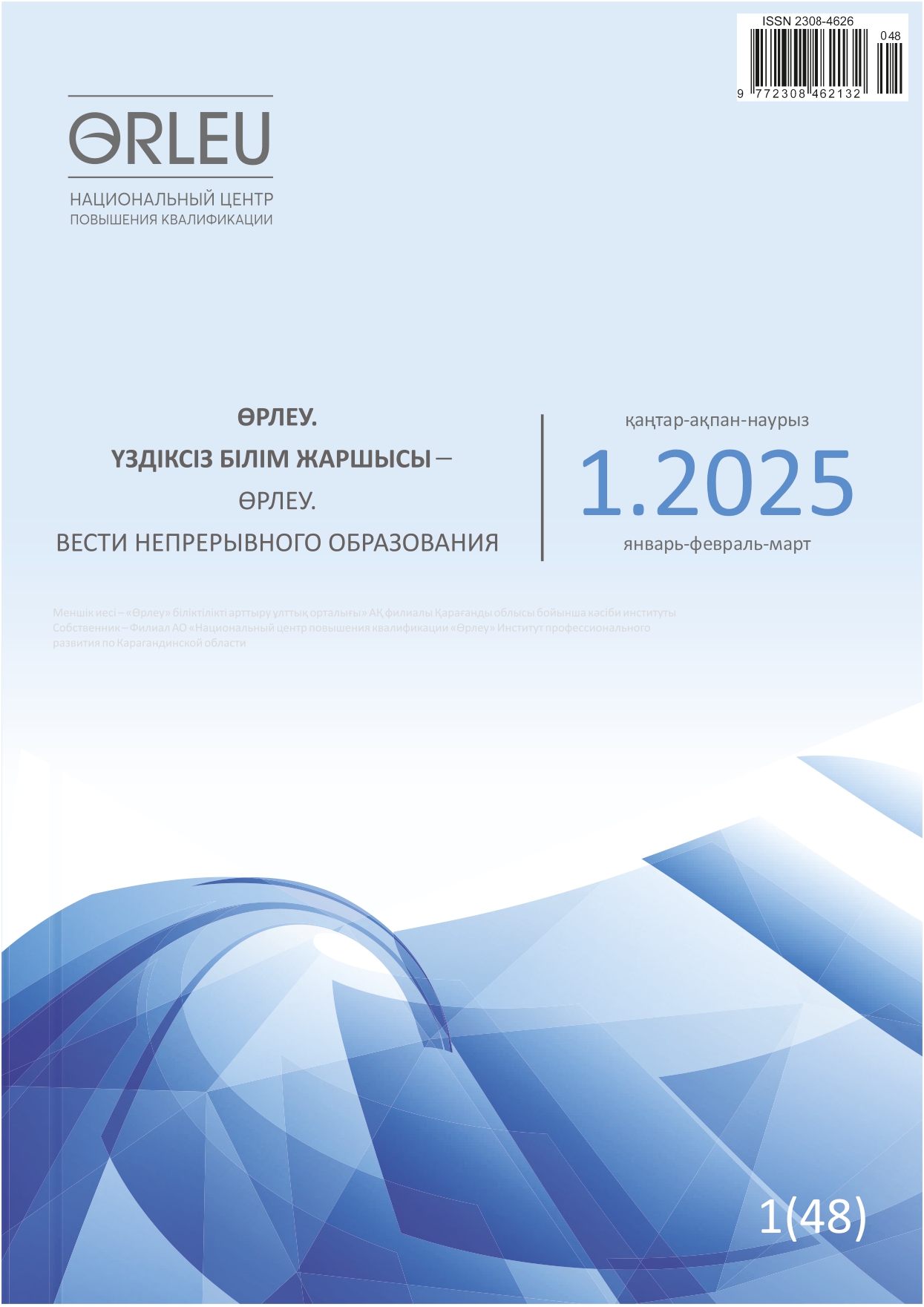Аннотация
Бұл мақалада болашақ дене шынықтыру мұғалімдерін даярлауда жасанды интеллект (ЖИ) технологияларын пайдалану арқылы әртүрлі фитнес мақсаттарына арналған жеке жаттығу жоспарларының тиімділігі зерттелген. Заманауи жоғары білім цифрлық трансформация процесінде және негізгі бағыттардың бірі оқу процесін жекелендіру үшін жасанды интелектіні пайдалану болып табылады. Оқытудың дәстүрлі әдістері студенттердің жеке ерекшеліктері, олардың дайындық деңгейін, материалды игеру жылдамдығын және оқытудың қолайлы түрлерін ескермейді. ЖИ білім беру жүйесіне енгізу әр студенттің қажеттіліктеріне бейімделген жеке оқу жоспарларын құрудың жаңа мүмкіндіктерін ашады. Зерттеу барысында машиналық оқыту алгоритмдері мен нейрондық желі модельдерін қолдана отырып, болашақ дене шынықтыру мұғалімдерінің жеке оқу траекториясын жасау тәсілдері қарастырылады. Оқу материалдары бойынша ұсыныстарды автоматты түрде қалыптастыруға, олардың күрделілігін игеру реттілігіне ықпал ететін ЖИ-нің негізгі тетіктері қарастырылды. Зерттеудің мақсаты жеке жаттығу жоспарларын құруда жасанды интелектіні қолдану арқылы оқу үлгеріміне әсерін талдау болып табылады. Зерттеу әдістері ғылыми әдебиеттерді шолуды, студенттердің жеке жаттығуларын құруда ұйымдастырылған экспериментті зерттеуді қамтиды. Зерттеу нәтижесінде ЖИ-ке негізделген жеке жаттығу мен оқыту жүйелерін қолданатын студенттер дәстүрлі әдістеме бойынша оқыған бақылау тобымен салыстырғанда 15% жоғары нәтиже көрсеткені анықталды. Және оқытушылардың 78%-ы бейімделген білім беру технологияларымен жұмыс істеудің ыңғайлылығын, олардың оқу процесінде әлеуетті пайдасын атап өтті. Жеке жаттығуды құрастыру бойынша зерттеу барысында 25 адам төрт негізгі топқа бөлінді: арықтау, бұлшықет массасын арттыру, төзімділікті жақсарту және жалпы денсаулықты нығайту. Әр қатысушының жеке мақсаттары мен денсаулық көрсеткіштері ескеріле отырып, ЖИ негізінде арнайы жаттығу бағдарламалары құрылды. Эксперименттік топтың нәтижелері бақылау тобымен салыстырғанда айтарлықтай жоғары болды: дене салмағы, бұлшықет массасы, төзімділік және калория шығынының көрсеткіштері артты. Зерттеу нәтижелері ЖИ көмегімен құрылған жеке жаттығу бағдарламаларының қатысушылардың физикалық жағдайын жақсартуда тиімді екенін көрсетті. Және де жоғары оқу орнында болашақ дене шынықтыру мұғалімін даярлауда ЖИ енгізу арқылы жеке оқыту, академиялық үлгерімді артыруға және оқытушылардың жұмысын оңтайландыруға ықпал етеді.


